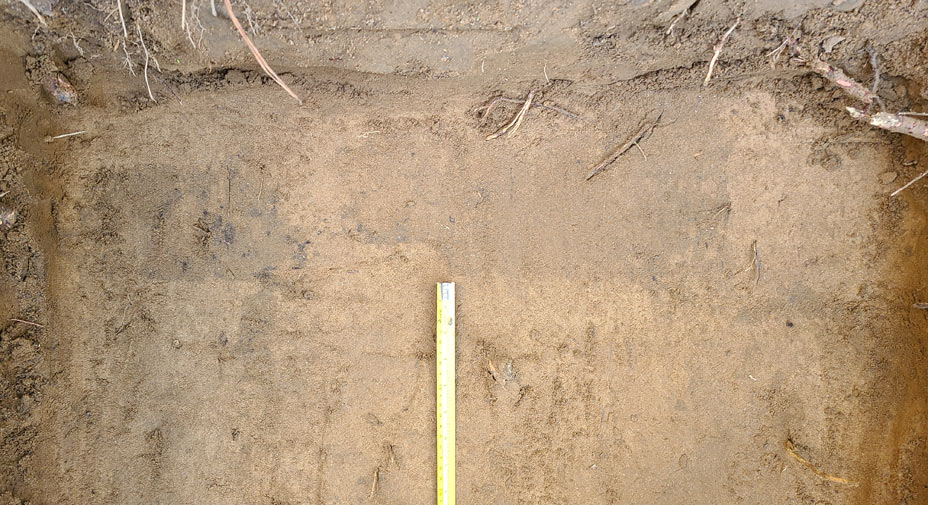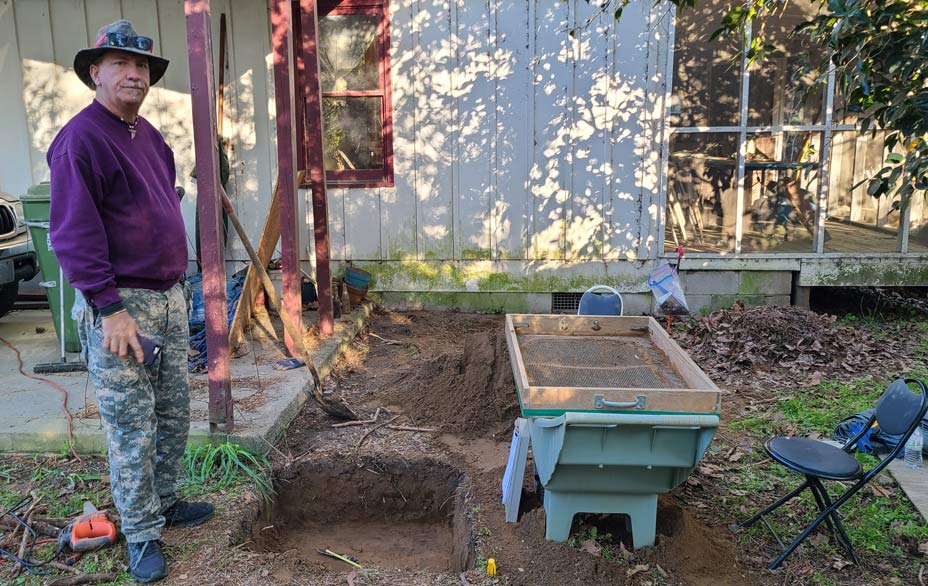Pit 121: Level 2
Completed on April 3, 2021 by Jocelyn and DC Locke, Odess and David Brinkman. It did not take long to make maybe the biggest find of the dig. We know our dig site is within a few hundred feet of the bloodiest event of the sieges of Fort Granby. Were any of the over 25 musket balls (found in the dig) related to this event? You can't date a musket ball to a short period of time like the American Revolution. So, after nine years of digging, we did not have a single item that we could absolutely date to the Rev War. But within the span of several minutes, one shovel of dirt would give two obvious Granby period items (a piece of green wine bottle glass and another piece of clear kitchen glass.) DC then announced, "could it be?" I looked over, and he was wiping the dirt off of what looked like a button. Latin words began to show and the image of a three-legged bird. The words were "Devs Spes Nostra" (God Is Our Hope). The three-legged bird was a Teutonic eagle. A little research proved this would have been worn by Hessian Military men during the revolutionary war. The British employed 30,000 German Hessians in the Revolutionary war. 60 of the 300 men occupying Fort Granby were Hessians. Just like that, we had an artifact that dated to the critical Revolutionary War year of 1781. But, this was not the end of significant finds in level two. We began to recover large pieces of wood charcoal. When changed to charcoal, wood (and its tree-type signature) can last for thousands of years. We also found five pieces of low-quality whiteware pottery and one pipe bowl piece. With the main Granby house, our excavations show higher quality pottery and also very expensive imported English pottery. The lack of this quality pottery and the presence of "cheap" pottery all point to possible slave quarters. Could the burned wood be from one of these slave buildings. We also found a piece of cloth/thread which is similar in ways to pieces we found in two other pits except that the color did not match the indego blue of the previous finds. So, this could be more modern or could it be part of the colorful uniforms that were worn by the Hessian soldiers? At the bottom of level two, we then found the prominent archaeological features of wood posts. With only two square nails found and moderate brick pieces, we again thought this was a simple building that stood here.
Pit 121: Level 2 produced: Multiple wood structure features. A 1781 Revolutionary war Hessian button, six pieces of pottery, one pipe bowl, 7 Native American, 3 glass, 2 nails, 80 charcoal, one cloth, and two iron.
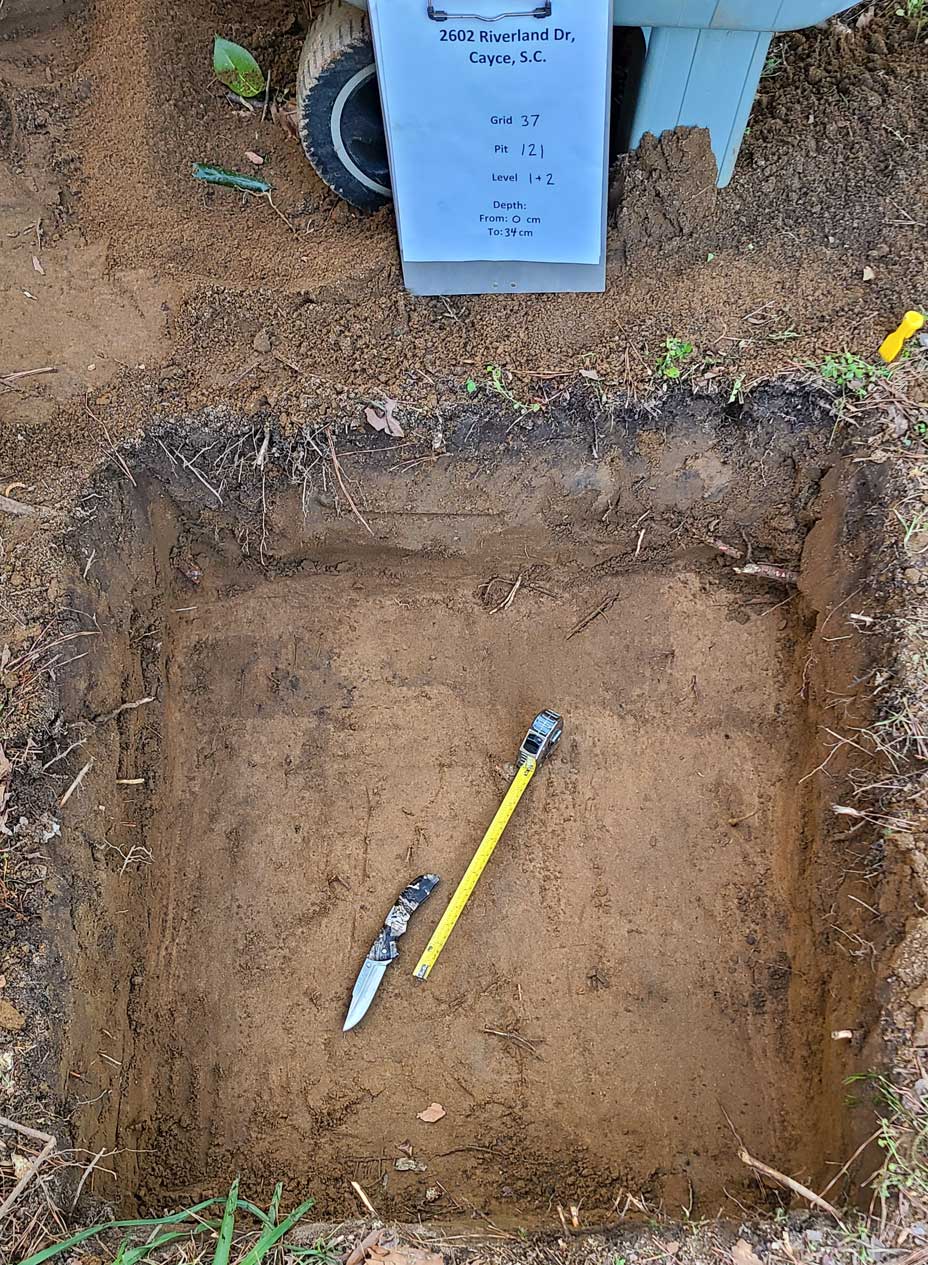

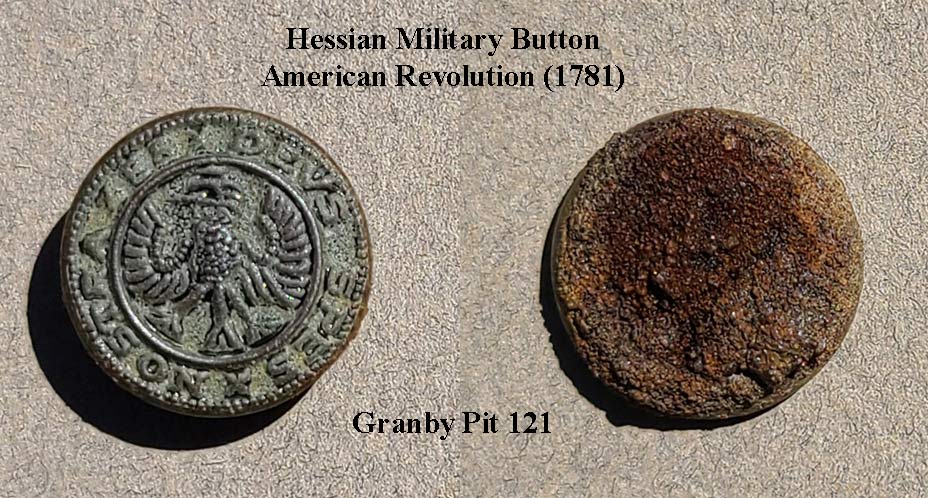
Below: The button artifact was later compared to a mass-produced replica (1900-1930) and was proven to be the real thing. A 2D comparison of the buttons shows very little difference but, in 3D, the copy is flat on the front surface while ours has a rise in the inner circle. Another known difference is that the original is heavier. Ours, in fact, is 30% heavier. The most important difference, however, is that the replicas have an obvious 20th-century eye (where the thread goes) on the back of the button.
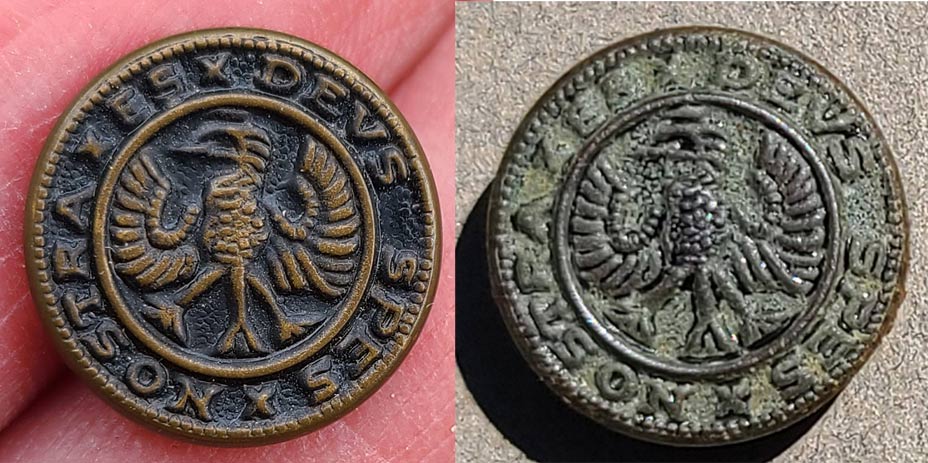
Below: A cloth/thread artifact. Old or new? Could it have been part of a Hessian uniform? Could these post-war discarded uniforms have fallen into the possession of local slaves?
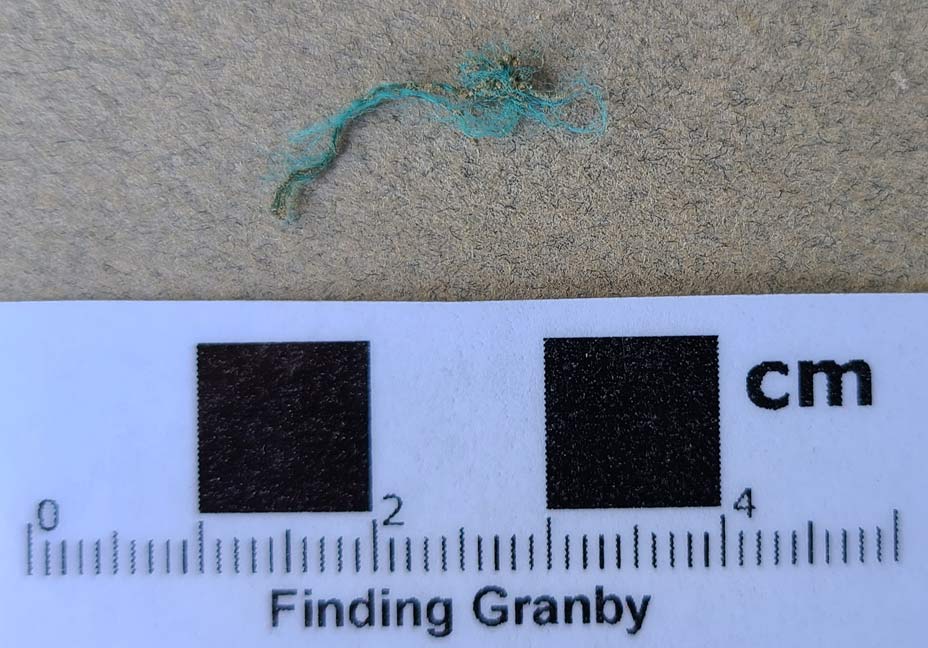
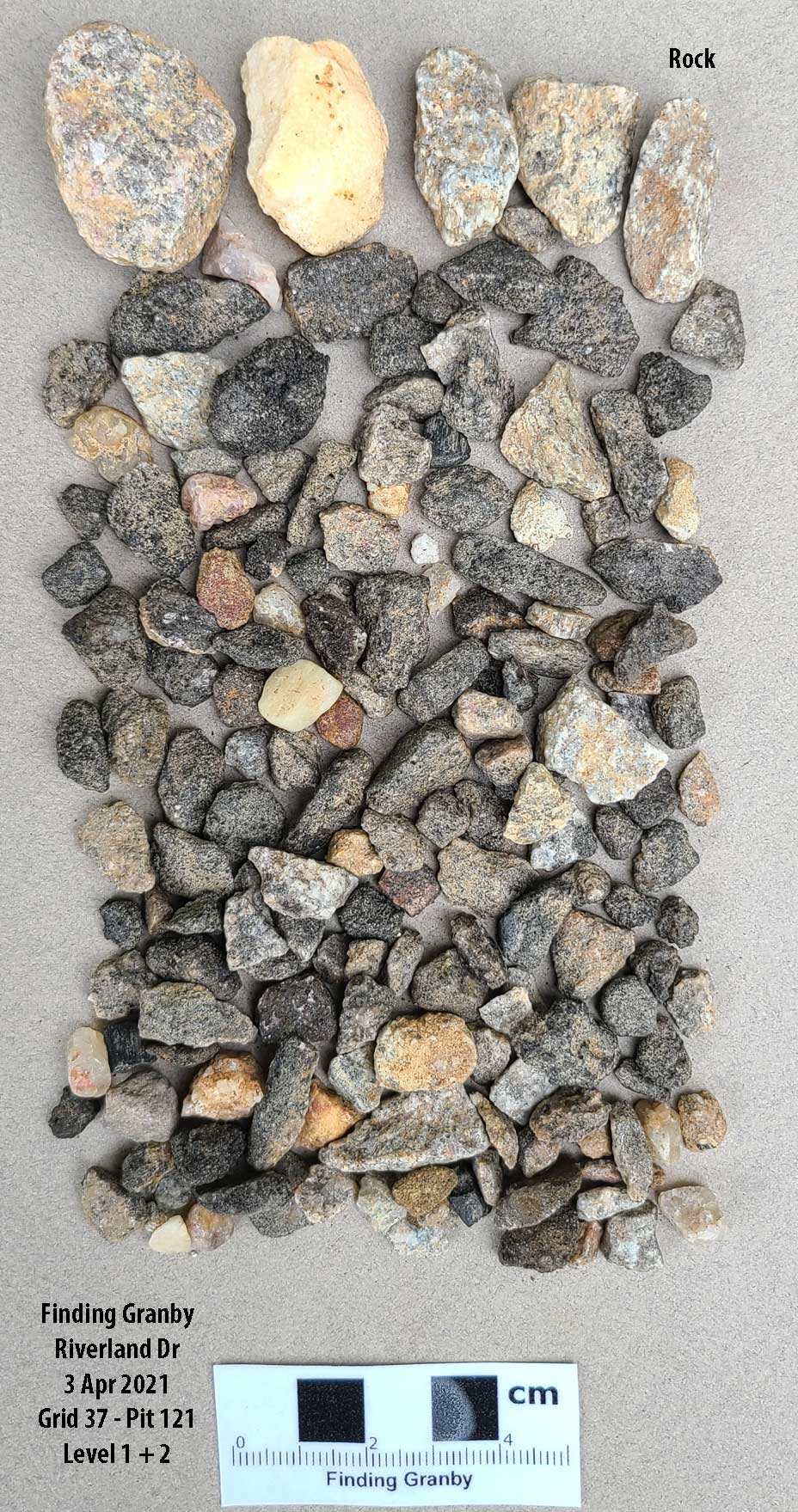
Below: Two wood structure features. The one on the left is partially burned.
